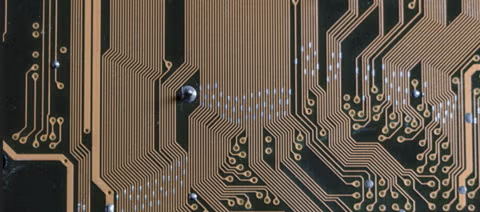
The research area of circuits and systems focuses on the theory, analysis, and design of interconnected devices and components, with a strong emphasis on signal processing and communications applications. Given the complexity of modern circuits and systems, computer methods and algorithms are essential for simulation, synthesis, layout, verification, and testing. Researchers and graduate students have access to cutting-edge circuit design and simulation tools, enabling them to stay at the forefront of the field. Additionally, graduate students are encouraged to design, fabricate, and test their circuits using commercially available integrated circuit processes, providing valuable hands-on experience and fostering innovation.
Faculty members participating in integrated devices, circuits, and systems research:
Hany Aziz
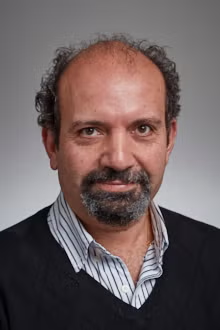
Biography
Dr. Hany Aziz is a professor, University Research Chair, and Associate Chair for Graduate Studies in the Department of Electrical and Computer Engineering with a cross-appointment to the Department of Chemical Engineering. He served as the Associate Director of Waterloo’s Nanotechnology Engineering program from 2015 to 2019. He is also Associate Director of the Giga-to-Nanoelectronics Centre. He previously held the appointment of NSERC- DALSA Research Chair in organic electronics.
Dr. Aziz is the Director of the Organic Optoelectronic Materials and Devices Laboratory. His group conducts research in the interdisciplinary area of organic electronics and optoelectronics, including both electroluminescent (such as organic light-emitting devices, or OLEDs, and quantum dot LEDs) and light-harvesting (such as organic photovoltaics and optical sensing) materials and devices. The research spans a wide range of areas, ranging from studying fundamental phenomena in organic semiconductors (such as carrier injection and transport, exciton dynamics, and carrier-exciton interactions) to developing novel devices and fabrication technologies for next-generation electronics (such as flexible flat panel displays and printable electronics).
Dr. Aziz’s research contributions are widely cited in the organic electronics community, and have resulted in over 150 peer-reviewed publications to date. He has several inventions including the industry’s benchmark long-life and thermally stable OLED and the contrast-enhancing Black Cathode™ Technology. He holds 51 U.S. patents. In 2020, he was awarded a University Research Chair.
Research interests
- Organic electronics
- Optoelectronic materials and devices
- Charge and energy transfer in amorphous semiconductors
- Materials for flexible and printable electronics
- Nanotechnology
- Additive manufacturing
- Renewable energy
- Nano-electronics
- Organic light emitting devices (OLEDs)
- Organic photovoltaics
- Optical sensing\/imaging
Dayan Ban

Biography
Dr. Dayan Ban is a professor in the Department of Electrical and Computer Engineering, Associate Director for the Centre for Intelligent Antenna and Radio Systems, and a researcher at the Waterloo Institute for Nanotechnology. His expertise lies in the conversion of near-infrared light directly to visible light, design and fabrication of high-performance quantum devices and the development of ultra-sensitive surface plasmon sensors.
Dr. Ban successfully improved the efficiency of hybrid organic/inorganic devices by more than one order of magnitude and applied time-domain terahertz spectroscopy to study the device physics of terahertz quantum cascade lasers. Dr. Ban’s research has also accomplished the fabrication of prototype hybrid organic/inorganic devices by direct tandem integration and the study of the effects of interfacial states on device performance. These devices are responsible for the conversion of near-infrared light directly to visible light (green) at room temperature.
Dr. Ban pioneered the development of new methods in scanning probe microscopy to observe, with nanometric spatial resolution, two-dimensional profiles of conductivity and potential inside actively driven lasers. He also resolved the nanoscopic reason for anomalously high series resistance encountered in ridge waveguide lasers. In addition, Dr. Ban reported the first direct experimental observation of electron overbarrier leakage in operating buried heterostructure multi-quantum-well –lasers. His work has provided the first experimental visualization of the inner workings of operating semiconductor lasers and has also provided a platform for enabling tools for quantum semiconductor device and nanotechnology research.
Research interests
- Semiconductor Quantum Devices
- Photonics
- THz Technology
- Nanotechnology
- Atomic Force Microscope
- Fiber-Optical Communication System
- Silicon Devices
- Terahertz Quantum Cascade Lasers
- Biophotonics
- Scanning Probe Microscopy
- Connectivity and Internet of Things (IoT)
- Nanofabrication
- IoT Devices
- Application Domains
James Barby

Biography
Dr. James Barby is an associate professor in the Department of Electrical and Computer Engineering at the University of Waterloo.
His research interests include mixed-mode and behavioural models of devices, complex analog or mixed-mode circuits, simulation of switched networks for communications and power electronics, analysis methods and models for digital, analog and mixed-signal VLSI systems, and optimal fit numerical approximations of transistor models.
In addition to his research work, Dr. Barby has written journal papers for IEEE and annual conference papers for the International Symposium on Circuits and Systems.
Research interests
- mixed-mode and behavioural models of devices
- complex analog or mixed-mode circuits
- simulation of switched networks
- analog and mixed-signal VLSI systems
- optimal fit numerical approximations of transistor
- circuits Design & VLSI
Slim Boumaiza

Biography
Dr. Slim Boumaiza is a professor in the Department of Electrical and Computer Engineering at the University of Waterloo. He is also director of the Centre for Intelligent Antenna and Radio Systems.
Dr. Boumaiza's research is focused on defining, conceptualizing, designing, and realizing high-performing microwave and millimeter wave circuits and systems for wireless communications (with applications in 4G, 5G and the Internet of Things). He directs the Emerging Radio System Research Group (EmRG), which conducts multidisciplinary research encompassing the semiconductor device, circuit, and system levels of radio hardware. Under his supervision, researchers investigate the areas of transistor modelling and characterization (at the semiconductor device level), ultra-wideband and highly efficient power amplifiers (at the circuit level) and low power linearization schemes (at the system level).
He is passionately involved in communicating knowledge of radio systems through teaching, supervision, and youth outreach. He has taught several undergraduate and graduate courses covering basics of electrical engineering and advanced topics in microwave engineering. Over 100 highly qualified personnel (undergraduate, master's, and PhD students, postdoctoral fellows, and other research staff) have worked under his supervision to date. Many have gone on to secure highly sought-after positions in industry. Dr. Boumaiza and his team actively participate in university-led efforts to engage youth and minorities and promote their interest in engineering.
Research interests
- Microwave and Millimeter Wave (mm-wave) Circuits and Systems
- High Efficiency Power Amplifiers for Wireless Communications (sub 6 GHz and mm-wave)
- Digital Predistortion Techniques for 4G and 5G Power Amplifiers and Massive MIMO\/Beamforming Transmitters
- Nonlinear Microwave Circuits Characterization and Modeling
- 5G Radio Hardware
- Advanced Circuits and Systems for Microwave and mm-wave Radio Front-ends (printed circuit boards and integrated circuit technologies)
- Advanced Signal Processing for Wireless Communications
Andrew Boutros

Biography
Dr. Andrew Boutros is an assistant professor in the Department of Electrical and Computer Engineering at the University of Waterloo. He received his BSc in electronics engineering from the German University in Cairo in 2016, and his MASc and PhD in electrical and computer engineering from the University of Toronto in 2018 and 2024, respectively. His research interests include architecture and CAD tools for reconfigurable computer hardware, and domain-specific acceleration for computationally demanding workloads. During and prior to his PhD, Dr. Boutros spent 4 years as a research scientist at Intel Labs and Intel’s Programmable Solutions Group (now Altera) and then led the Toronto office of MangoBoost, a startup developing specialized accelerators for datacenter infrastructure tasks. He has published over 30 papers and won 4 best paper awards in the area of reconfigurable computing.
Research interests
- Reconfigurable Computing
- Field-Programmable Gate Array (FPGA) Architecture
- Computer-Aided Design (CAD)
- Domain-Specific Acceleration
Vincent Gaudet

Biography
Dr. Vincent Gaudet is a professor in the Department of Electrical and Computer Engineering at the University of Waterloo.
His research interests focus on high-speed and energy-efficient microelectronic circuits applied to digital communication systems and signal processing. He is particularly interested in stochastic computing systems and multiple-valued logic. He has worked on low-density parity-check (LDPC) and turbo decoders, multiple-access channels, implantable neural recording systems, and integrated lab-on-chip instrumentation circuitry.
Dr. Gaudet is currently a Senior Member of the IEEE, and holds many editorial positions. In 2009, he received the Petro Canada Young Innovator Award to recognize and support his work of outstanding young faculty-based research.
Research interests
- VLSI circuits
- Analog circuits
- Mixed-signal circuits
- Digital circuits
- CMOS design
- Low-power circuits
- LDPC decoding
- Turbo decoding
- Iterative decoding
- Stochastic computation
- Connectivity and Internet of Things
- Digital design and fabrication technologies
- Embedded systems
- Information systems
- Sensors and devices
- Wireless communications/networking
- Microelectronic circuits
- Digital communications
- Signal processing
- Devices
Anwar Hasan
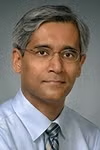
Biography
Dr. Anwar Hasan is a professor in the Department of Electrical and Computer Engineering at the University of Waterloo and holds the Ripple Chair. He is also a faculty member at Waterloo's Cybersecurity and Privacy Institute. From January 2013 to April 2018, Dr. Hasan served as the Associate Dean of Research and External Partnerships for the Faculty of Engineering.
Dr. Hasan's research focuses on cryptographic computations and embedded systems, dependable and secure computing, and security for cloud computing and the Internet of Things (IoT).
He has contributed to numerous books, journal articles, and conference papers and has received several awards recognizing his outstanding achievements in research.
Research interests
- Cryptographic Hardware
- Embedded Systems
- Dependable and Secure Computing
- Computer Arithmetic
- Computer Architecture
- Computer Security
- Network Security
- Computer & Software Engineering
- Cloud Technology
- Security
- Cybersecurity
- Blockchain
- Privacy and Cryptography
- Information Security
- Operational Security
Karim Karim
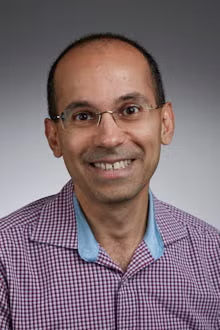
Biography
Dr. Karim S. Karim is a professor in the Department of Electrical and Computer Engineering at the University of Waterloo, where he leads the Silicon Thin-Film Applied Research Group. He has secured more than $15M in research grant funding, trained over 40 PhD and MASc students, and co-authored 250+ publications and 50+ patents.
He is a founder and chief technology officer of KA Imaging, a University of Waterloo spinoff company that makes innovative X-ray detectors and systems for medical, veterinary, scientific and industrial markets. Dr. Karim has developed novel imaging devices and systems since 1998 and has both supported and founded multiple startups over the past two decades. One of his “colour” X-ray innovations is now starting to replace black and white medical X-ray globally, while another is used in ultrasonic fingerprint sensors in mobile phones and tablets.
Research interests
- Spectral X-ray Imaging
- Phase Contrast X-ray Imaging
- Medical Imaging
- Large area electronics
- Semiconductor Devices and Fabrication
Na Young Kim
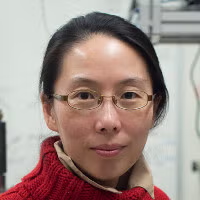
Biography
Dr. Na Young Kim is an associate professor in the Department of Electrical and Computer Engineering at the University of Waterloo. She is affiliated with the Institute for Quantum Computing (IQC) and the Waterloo Institute for Nanotechnology (WIN) and holds cross-appointments in the Departments of Physics and Astronomy, and Chemistry.
As the leader of the Quantum Innovation (QuIN) Laboratory, Dr. Kim drives cutting-edge research to develop large-scale quantum processors using novel materials and advanced technologies. Her team is currently spearheading two major projects:
- Semiconductor Quantum Processors—This project explores controllable optical and electrical domains, unveiling the properties of exotic materials and the fundamental nature of symmetries.
- Multi-Functional Classical and Quantum Device Arrays – This initiative aims to establish a planar architecture integrating nano-scale devices with electrical, optical, thermal, and mechanical functionalities.
Before joining the University of Waterloo in 2016, Dr. Kim worked at Apple Inc., where she contributed to the development of small display products. She earned her BS in Physics from Seoul National University and completed her graduate studies at Stanford University’s Department of Applied Physics, focusing on mesoscopic transport properties in low-dimensional nanostructures. Her postgraduate research expanded into quantum optics and nanophotonics, encompassing both experimental and theoretical projects in collaboration with leading scholars.
Research interests
- Large-Scale Solid-State Quantum Computer
- Quantum Simulator
- Quantum Information Processing & Communications
- Quantum Artificial Intelligence
- Quantum Security
- Nanotechnology
Peter Levine
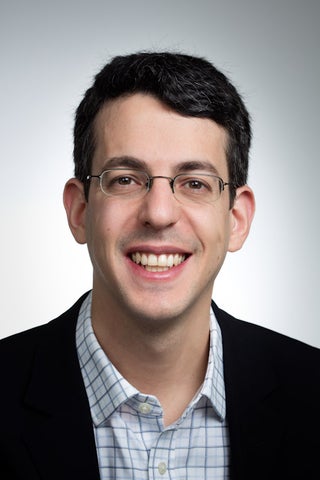
Biography
Dr. Peter Levine is an associate professor in the Department of Electrical and Computer Engineering at the University of Waterloo, where he leads the Silicon Bioelectronics (SiBio) Laboratory.
His research group develops complementary metal-oxide-semiconductor (CMOS) integrated circuits (ICs) that translate the chemical world of biology to the digital world. By combining standard CMOS analog/mixed-signal ICs with novel structures, materials, or devices, he and his team are developing advanced CMOS imagers and biosensors for a wide range of life-science and biosensing applications.
Research interests
- CMOS analog/mixed-signal integrated circuits (ICs)
- CMOS electrochemical biosensors
- CMOS imagers (visible, IR, and X-ray)
John Long

Biography
Dr. John R. Long is a professor in the Department of Electrical and Computer Engineering at the University of Waterloo. He received a B.Sc. in Electrical Engineering from the University of Calgary in 1984, and an M.Eng. and Ph.D. in Electronics from Carleton University in Ottawa, Canada, in 1992 and 1996, respectively. He was the Chair of the Electronics Research Laboratory at the Delft University of Technology in the Netherlands.
His research interests include high-speed wireline and high frequency, low power and mobile transceiver circuits for integrated wireless communications systems.
Research interests
- high speed wireline and high frequency
- low power and mobile transceiver circuits for integrated wireless communications systems
- advanced manufacturing
David Nairn
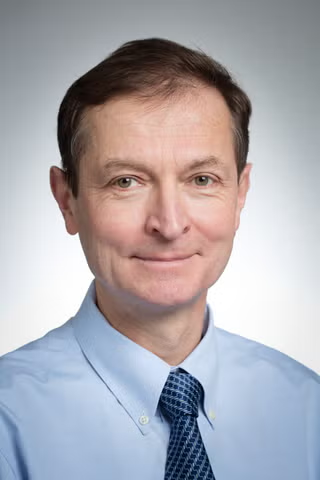
Biography
Dr. David Nairn is an associate professor in the Department of Electrical and Computer Engineering at the University of Waterloo.
His research is mainly in the field of electronic circuits, including analog and mixed signal circuit design, with an emphasis on analog-to-digital converters (ADCs), and digital-to-analog converters (DACs).
Research interests
- Analog and Mixed Signal Circuit Design
- Analog-to-Digital Converters (ADCs)
- Digital-to-Analog Converters (DACs)
- Circuit Design & VLSI
Chrystopher Nehaniv
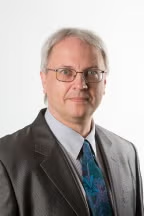
Biography
Dr. Chrystopher Nehaniv is a full professor in the Departments of Systems Design Engineering and Electrical and Computer Engineering at the University of Waterloo, a position he has held since August 2018. A mathematician, computer scientist, and complex adaptive systems researcher, Dr. Nehaniv is also affiliated with the University of Hertfordshire in the United Kingdom, where he previously served as Director of the Centre for Computer Science & Informatics Research. There, he led research in the Algorithms, Adaptive Systems, and Wolfson Royal Society Biocomputation Research Groups as a professor of mathematical and evolutionary computer sciences.
Before moving to Canada, Dr. Nehaniv was a full professor at the University of Aizu in Japan and held visiting professorships in mathematics at Ibaraki National University, Japan, and the Institute for Mathematics & Informatics at the University of Debrecen, Hungary. He was also a postdoctoral research fellow and lecturer in mathematics at the University of California, Berkeley.
Dr. Nehaniv is the founder of the Waterloo Algebraic Intelligence & Computation Laboratory (WAICL) and, alongside Dr. Kerstin Dautenhahn, co-founded the University of Waterloo's Social and Intelligent Robotics Research Laboratory (SIRRL). He is a member of the Waterloo AI Institute and serves on the steering committee of the Waterloo Institute for Complexity and Innovation (WICI).
An active contributor to the academic community, Dr. Nehaniv is an associate editor for BioSystems, IEEE Transactions on Cognitive and Developmental Systems, Interaction Studies, and Complexity. He previously served as topic editor-in-chief for The International Journal of Advanced Robotic Systems in the areas of AI robotics and human-machine/robot interaction. He has been involved with the IEEE Task Force for Artificial Life and Complex Adaptive Systems since its inception in 2003, serving as Chair from 2012 to 2018 and as Vice Chair since 2018. He is also a member of the IEEE Cognitive and Developmental Systems Technical Committee (2019-present) of the IEEE Computational Intelligence Society.
Research interests
- Algebraic Methods in Algorithms & Applications
- Artificial Intelligence
- Artificial Life & Complex Adaptive Systems
- Algebra & Discrete-Event Dynamical Systems:
- Automata, Permutation Groups, Transformation Semigroups, Interaction Machines, Models of Time
- Systems Biology & Neuroscience: Mathematical & Computational Methods
- Gene-Regulatory Networks & Differentiated Multicellularity
- Interactive Systems Design
- Cognitive Architectures for AI Robotics
- Enactive Experiential & Temporally Extended Intelligence
- Evolvability
- Cognitive\/Social\/ Skill & Linguistic Development in Animals & Artifacts
- Dynamic Networks
- Whole-Part Relations\/Natural Subsystems
- Global Hierarchical Coordinate Systems for Understanding\/Prediction\/Manipulation in STEM
Mahla Poudineh
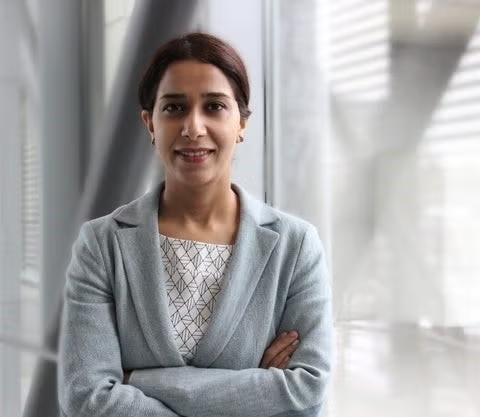
Biography
Dr. Mahla Poudineh is an associate professor and director of the Integrated Devices for Early Disease Awareness and Translational Applications (IDEATION) Lab in the Department of Electrical and Computer Engineering at the University of Waterloo. She holds a Tier 2 Canada Research Chair in Health Monitoring BioNano Devices.
Dr. Poudineh earned her PhD in Electrical Engineering, with a minor in Biomedical Engineering, from the University of Toronto in 2016. Before joining UWaterloo, She completed postdoctoral training at the University of Toronto's Department of Pharmaceutical Science in 2017 and at Stanford University’s School of Medicine in 2019.
She holds both a B.Sc. and M.Sc. in Electrical Engineering from the University of Tehran, Iran, awarded in 2010 and 2012, respectively. Her research focuses on developing bio-sensing technologies for therapeutic and diagnostic applications, with a particular emphasis on translating biomedical devices into clinical settings.
Research interests
- Real-time bio-sensing approaches for detection of small molecules
- Microfluidic-based integrated devices for therapeutics and diagnostics purposes
- Implantable micro-devices for cancer treatment
- Circulating tumor cell phenotypic characterization
- Stem cell profiling and characterization
- Translating biomedical devices for clinical use
- Silicon micro-machining for developing bio-MEMS and bio-NEMS devices
Omar Ramahi
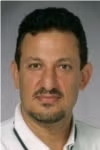
Biography
Dr. Omar Ramahi is a professor in the Department of Electrical and Computer Engineering at the University of Waterloo, and is the Director of the Advanced Concepts Research Laboratory.
His research interests include radiating systems, renewable energy technology, biomedical applications of electromagnetic waves and fields, electromagnetic compatibility and interference, metamaterials and its engineering applications, and material measurements. In addition to his research, he co-founded Applied Electromagnetic Technology, LLC., and Wave Intelligence Inc.
Dr. Ramahi has received numerous awards as a result of his extensive research and teaching capabilities. He was recognized for his graduate research work with the 2010 University of Waterloo Award for Excellence in Graduate Supervision. Additionally, he was awarded the IEEE Electromagnetic Compatibility Society Technical Achievement Award in 2012. Dr. Ramahi is an elected IEEE Fellow.
He has written over 450 journal and conference papers on electromagnetic phenomena and computational techniques. EMI/EMC Computational Modeling Handbook is one of the notable books that Dr. Ramahi co-authored.
Research interests
- Radiating Systems
- Theoretical and Computational Electromagnetics
- Electromagnetic Compatibility
- Interference and Electronic Packaging
- Biomedical Applications of Electromagnetics
- Photonics
- Material measurements
- Antennas, Microwaves & Photonics
- Medical imaging
- Scanning
- Energy harvesting/bio-energy
- Renewable energy
- Sensors and devices
- Wireless communications/networking
Manoj Sachdev
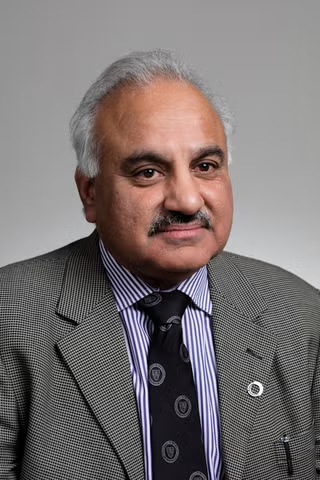
Biography
Dr. Manoj Sachdev is a professor in the Department of Electrical and Computer Engineering at the University of Waterloo.
His research interests include low-power and high-performance digital circuit design, mixed-signal circuit design, and test and manufacturing issues of integrated circuits. He has contributed to over 180 conference and journal publications and has written 5 books. He also holds more than 30 granted US patents.
Dr. Sachdev, along with his students and colleagues, has received several international research awards. He is a Fellow of the Institute of Electrical and Electronics Engineers (IEEE) and a Fellow of the Engineering Institute of Canada. Dr. Sachdev serves on the editorial board of the Journal of Electronic Testing: Theory and Applications. He is also a member of the program of the IEEE Custom Integrated Circuits Conference.
Research interests
- Digital circuit design for low power
- low voltage applications
- High performance mixed-signal circuit design
- Robust design practices for VLSI
- VLSI testing and design
- VLSI quality
- VLSI reliability
- VLSI improvement techniques
- Circuits Design & VLSI
- Cybersecurity
- Application security
- Network security
Sebastian Schulz
Biography
Dr. Sebastian Schulz is an associate professor in the Department of Electrical and Computer Engineering at the University of Waterloo. Before joining Waterloo, he served as the head of the Nanophotonics research group and a senior lecturer in physics at the University of St Andrews. Dr. Schulz earned both his undergraduate and postgraduate degrees in physics from the University of St Andrews, followed by postdoctoral research at the University of Ottawa and the Cork Institute of Technology. His research focuses on novel optical materials and structures that enable control of dispersion and scattering of light, with applications in areas such as metrology and data communications.
Research interests
- Nanophotonics
- Plasmonics
- Metamaterials
- Metasurfaces
- Nonlinear optics
- Photonic crystals
- Nanometrology
Siva Sivoththaman
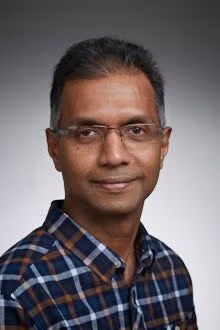
Biography
Dr. Siva Sivoththaman is a Professor in the Department of Electrical and Computer Engineering at the University of Waterloo. He is also the Director of the Centre for Advanced Photovoltaic and Display Systems (CAPDS). For six years, he served as the Associate Dean of Graduate Studies & Postdoctoral Affairs in the Faculty of Engineering, with his term concluding in August 2025.
Dr. Sivoththaman earned his Doctorate from the University of Paris XII - Créteil Val de Marne (France) in 1993. He then worked as a Research Scientist at the Interuniversity Microelectronics Centre (IMEC) in Belgium for six years before relocating to Canada in 2000 to join the Department of Electrical and Computer Engineering at the University of Waterloo.
Dr. Sivoththaman was honored with the Ontario Premier's Research Excellence Award in 2002 and has held two prestigious Research Chairs: the NSERC Associate Industrial Research Chair in Radio Frequency Micro Electro Mechanical Systems (2002-2006) and the Ontario Research Chair (ORC) in Renewable Energy Technologies and Health (2010-2015).
Dr. Sivoththaman served as the inaugural director of the University of Waterloo's Nanotechnology Engineering Program from 2004 to 2006. A Senior Member of the IEEE, he currently serves as the Chapter Chair for the Electron Devices Society of the IEEE Kitchener-Waterloo Section.
Research interests
- Solar Photovoltaic Technologies
- Microelectronic Fabrication
- Nanotechnology
- Advanced Photodetectors and Sensors
- Crystalline Silicon and Thin Film Materials
- Synthesis of Colloidal Quantum Dots
- Quantum Dot-enabled Emission Devices
- Smart Circuits for Solar Photovoltaic Systems
- Backplane Electronics in Displays
Shiyu Su
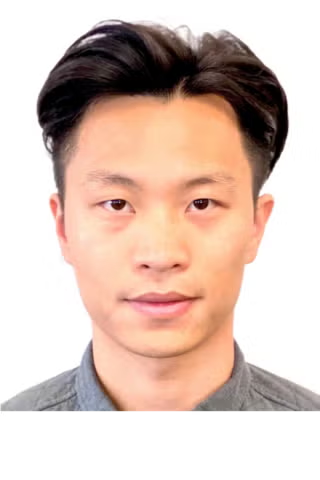
Biography
Dr. Shiyu Su received the B.S. degrees from Beijing University of Post and Telecommunication, China and Queen Mary, University of London, UK, in 2011, and the M.S. and Ph.D. degrees from University of Southern California (USC), Los Angeles, in 2013 and 2019, all in electrical engineering.
In 2022, he joined the Department of Electrical and Computer Engineering at the University of Waterloo, where he is currently an assistant professor. His research interests include high-speed data converters, wireless transceivers, digital phase-locked loop, advanced computing, and analog/mixed-signal design automation.
Dr. Su serves as a Technical Program Committee (TPC) Member of the IEEE International Solid-State Circuits Conference (ISSCC). He was the recipient of the IEEE Solid-State Circuits Society (SSCS) Predoctoral Achievement Award for 2017–2018, and the IEEE SSCS Student Travel Grant Award for 2019–2020, and a co-recipient of the Best Student Paper Award (First Place) at the 2022 IEEE Radio Frequency Integrated Circuits Symposium (RFIC). He was also a Ming Hsieh Institute Scholar from 2019 to 2020.
Research interests
- High-speed data converters
- Wireless transceiver
- Digital phase-locked loop
- Advanced computing
- Analog/mixed-signal design automation
Lan Wei
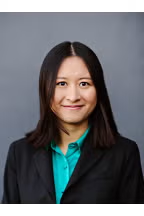
Biography
Dr. Lan Wei is an associate professor and Tier 2 Canada Research Chair in Nanoscale Devices and Circuits in the Department of Electrical and Computer Engineering at the University of Waterloo. At Waterloo, she leads the Waterloo Emerging Integrated Systems Group (WEIS).
She received her B.S. in Microelectronics and Economics from Peking University, Beijing, China, in 2005 and her M.S. and Ph.D. in Electrical Engineering from Stanford University, Stanford, USA (with Professor H.-S. Philip Wong) in 2007 and 2010, respectively. Before joining the University of Waterloo in 2014, Dr. Wei worked at Altera Corporation in San Jose, California, where her responsibilities included foundry technology evaluation, power management, and Stratix X FPGA product development with Intel 14nm technology. She also worked as a postdoctoral associate in Microsystems Technology Laboratories, Massachusetts Institute of Technology, under Professor Dimitri Antoniadis. Her research focuses on device-circuit interactive design and optimization, cryogenic CMOS electronics for quantum computing, error-resilient computation, and integrated electronic systems using emerging technologies including GaN, RRAM and low-dimensional materials.
Dr. Wei served on the Technical Program Committee of several academic conferences, including IEDM (2011-2012, 2021-2022), DATE (2021 - ), ICCAD (2019 - ), VLSI-TSA (2013 - ), GLSVLSI (2017 - ), ISQED (2019 - ) ISLPED (2013), etc, and was listed as one of the key contributors to the Process Integration, Devices, and Structures Chapter (PIDS) of the International Technology Roadmap for Semiconductors (ITRS) 2009 Edition. She is the co-developer of the MIT Virtual Source GaN HEMT (MVSG) Compact Model, which is an industry standard approved and supported by the Compact Model Coalition for GaN HEMT compact models.
Research interests
- Nanoelectronic devices
- Device-circuit interactive design and optimization
- Cryogenic CMOS electronics for quantum computing
- GaN-based devices and circuits
- Low-dimensional materials based integrated nanoelectronic systems
- RRAM device, circuit, and integrated system
- Device-circuit interactive design
- Error-resilient computing
William Wong
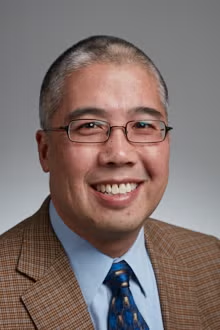
Biography
Dr. William S. Wong is a professor in the Department of Electrical and Computer Engineering at the University of Waterloo, where he also serves as director of the Giga-to-Nanoelectronics Centre and is a researcher at the Waterloo Institute for Nanotechnology.
Dr. Wong leads the Advanced Flexible Electronics Technology (AFET) group, which is dedicated to advancing high-performance, low-cost flexible electronics. The group is focused on the heterogeneous integration of silicon-based and Group III-nitride materials and devices to enable the development of flexible, large-area electronics on plastic substrates. These innovations are particularly relevant for applications in displays, image sensors, and energy generation systems, all of which benefit from enhanced functionality and mechanical flexibility. By leveraging the capabilities of the Giga-to-Nanoelectronics (G2N) Centre, the AFET group is advancing the synthesis of nanowire materials, processing of thin-film devices, and the development of hybrid devices using novel ink-jet printing and thin-film layer transfer techniques. The overarching goal of the group's research is to improve system performance while reducing fabrication costs.
Dr. Wong is an inventor with over 80 U.S. patents and has published more than 110 papers, including 45 invited talks, in the fields of electronic materials growth, processing, and characterization. He is an active member of the IEEE, the Materials Research Society, and serves on the committee of the Electronic Materials Conference. He is also on the Editorial Board of IEEE Electron Device Letters.
Research interests
- Large-area systems
- Flexible electronics
- Printed electronics
- Heterogeneous Integration
- Nano- and Microfabrication
Derek Wright
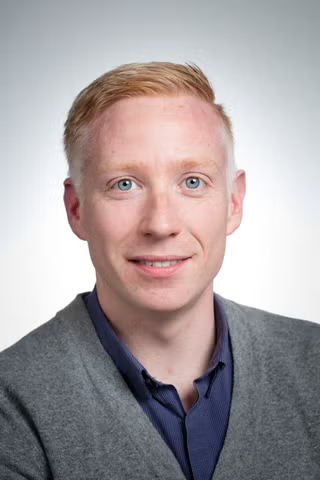
Biography
Dr. Derek Wright is an Associate Professor, Teaching Stream in the Department of Electrical and Computer Engineering and currently serving as the Director of Mechatronics Engineering. He also serves as the faculty advisor for the Waterloo Aerial Robotics Group. His research is in Digital ICs (especially spiking neural networks), Medical Imaging Physics, and Multidomain Modeling and Simulation. Dr. Wright is interested in productization and commercialization efforts related to this research and to student initiatives.
Research interests
- Neuromorphic hardware
- VLSI
- Multidomain modeling and simulation
Adjunct faculty members participating in circuits and systems research:
Mohamed Elmasry (Adjunct)
Biography
Dr. Mohamed Elmasry, FRSC, FIEEE, FCAE, FEIC, is an Adjunct Professor Emeritus in the Department of Electrical and Computer Engineering at the University of Waterloo.
He is the author of iMind: Artificial and Real Intelligence (Routledge, 2024), and is a top expert with 50 years experience in Artificial Neural Networks (the building blocks of AI).
Research interests
- VLSI circuits
- system design
- wireless communications systems
Catherine Gebotys (Adjunct)

Biography
Catherine H. Gebotys is an Adjunct Professor Emeritus in the Department of Electrical and Computer Engineering at the University of Waterloo.
Her research interests include embedded systems security, side channel analysis for secure devices, security countermeasures for cryptographic algorithms, and countermeasures for hardware hacking – side channel, fault injection, microprobing and reverse engineering.
Dr. Gebotys is the sole inventor of several patents and has also received numerous awards, including the CITO Champions of Innovation Award. In addition, she has collaborated with several companies including DRDC, XtremeEDA, Blackberry, Motorola, ViXS, and COMDEV.
Dr. Gebotys has published a number of research papers in the areas of side channel analysis, embedded security, applied optimization for high-level hardware and software synthesis. She is the author of Security in Embedded Devices, as well as the co-author of Optimal VLSI Architectural Synthesis: area, performance and testability.
Research interests
- Embedded security
- Security countermeasures
- Side channel analysis
- Fault injection analysis
- Photon emissions analysis
Ajoy Opal (Adjunct)
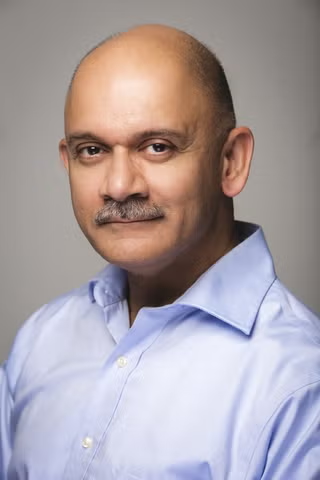
Biography
Dr. Ajoy Opal is an Adjunct Professor in the Department of Electrical and Computer Engineering at the University of Waterloo.
His research focuses on circuit and filter theory, numerical algorithms for the analysis and design of analog and switched circuits, as well as mixed analog-digital circuits. Dr. Opal's work combines theoretical foundations with practical applications to advance the field of circuit design.
In addition to his research, Dr. Opal is a published author, having co-authored the book Computer Methods for Analysis of Mixed-Mode Switching Circuits with Fei Yuan in 2010. He has also contributed numerous papers to journals and conferences, further advancing the knowledge in his areas of expertise.
Research interests
- Electrical Circuit Theory
- Circuit Simulation
- Analog Filter Design
- Circuits Design & VLSI
- Circuit theory and filter theory
- Numerical algorithms for analysis of analog and switched circuits
George Shaker (Adjunct)

Biography
Dr. George Shaker is an adjunct associate professor in the Department of Electrical and Computer Engineering at University of Waterloo. He also oversees wireless activities in the sensors and devices lab at the UW-Schlegel Research Institute for Aging. Previously, he was with Research in Motion (BlackBerry). He was also with Georgia Institute of Technology. He has been the Principal Scientist and Head of Research at Spark Technology Labs (STL), since its founding in 2011. In 2017, George was selected by the office of the president of NSERC among a group of ten Canadian professors to discuss Canadian research advancement in the Internet of Things (IoT) area at the special NSERC-NRC-MOST meeting in Ottawa. In addition, prof. Shaker serves on the organizational committee of the French-Canadian Bioengineering School.
With more than fifteen years of industrial experience in technology, and about eight years as an adjunct faculty member leading projects related to the application of wireless sensor systems for healthcare, automotives, and unmanned aerial vehicles, Prof. Shaker has many design contributions in commercial products available from startups and established companies alike. A sample list includes: COM DEV \, Blackberry, Google, Spark Tech Labs, Bionym, Lyngsoe Systems, ON Semiconductors, Ecobee, Medella Health, NERV Technologies, Novella, Thalmic Labs (North), General Dynamics Land Systems, and Omron Technologies.
George has received multiple recognitions and awards, including the NSERC Canada Graduate Scholarship (sole winner in the area of Electromagnetics across Canada, 2007-10, first UW student to receive the scholarship in EM), the Ontario Graduate Scholarship (2007, 2010), the European School of Antennas Grant at IMST-GmbH (2007), the IEEE AP-S Best Paper Award (2009, 3, first @ UW), the IEEE AP-S Honorable Mention Paper Award (Twice, 2008, 2011), the IEEE Antennas and Propagation Graduate Research Award (2008/2009, first @ UW), NSERC CGS-FSS (2009/2010, sole winner from UW Engineering), the IEEE MTT-S Graduate Fellowship (2009, first UW student to receive the fellowship), and the Electronic Components and Technology Best of Session Paper Award (2010). Two paper he co-authored in IEEE Sensors were among the top 25 downloaded papers on IEEEXplore for several consecutive months (2012/2017). He was the supervisor of the team winning the third best design at IEEE APS 2016, APS 2017 HM paper award, 2018 CVS Best Paper, and two IEEE APS Research Awards.
Research interests
- Antennas
- RF
- Wireless
- mm-Waves
- Sub-THz
- Sensors
- BioElectromagnetics
- Telematics
- V2X Communications
- RF\/microwave\/millimeter wave\/Terahertz (THz) circuits and antenna systems
- Radio frequency (RF)\/microwave packaging and Electromagnetic compatibility
- (EMC)\/Electromagnetic interface (EMI) analyses
- Vehicle and UAV wireless communications, navigation systems, and telematics systems
- Bio-wearable electronics and systems
- Energy harvesting systems
- Complex propagation and scattering phenomena
- Devices and novel electromagnetic materials and wireless sensors
- Bioengineering
- Biomedical Engineering